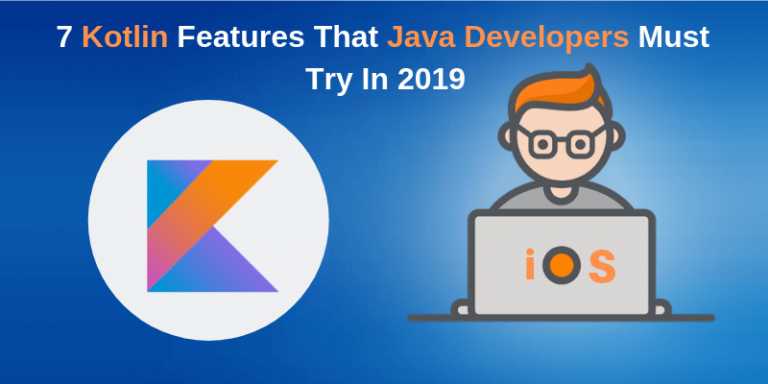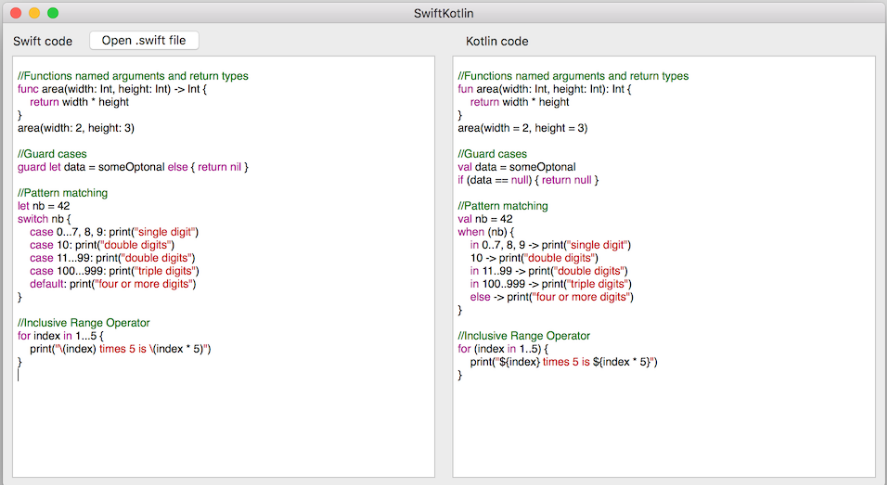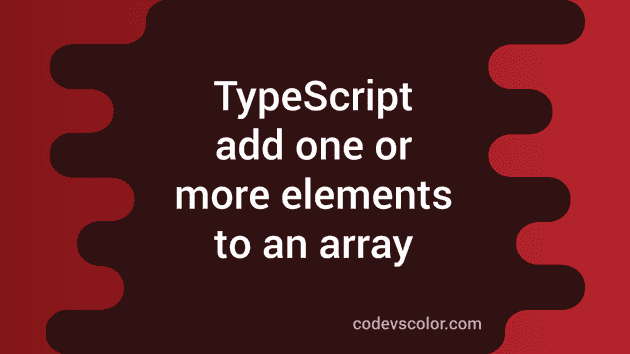
- #Kotlin to swift converter how to
- #Kotlin to swift converter android
- #Kotlin to swift converter code
With async/await API, elements are easily provided with their non-initial value imperatively and elegantly when fetchData is called.
#Kotlin to swift converter code
Thanks to the above implementation, with the help of an adapter, the use case code can be executed using async/await API.Ĭonsider the following example of a view-model implementation that publishes some kind of data elements: This behavior should be adjusted to your requirements.
#Kotlin to swift converter android
One of the popular adapter pattern implementations in the Android world is RecyclerView adapter. What Is the Adapter Design Pattern?Īn adapter design pattern is a popular structural design pattern that allows objects with incompatible interfaces to work together. The example presented in this article is only a demonstrative example that shows how Swift continuation API can be used to convert completion handlers of suspending functions into async/await, which can be useful for iOS developers dealing with Kotlin Multiplatform code.

#Kotlin to swift converter how to
The following sections will describe how to implement the very basic version of completion handler to async/await adapter. Considering the drawbacks, the solution is still worth checking out.

It is worth taking into account that this pattern adds some boilerplate and often has to be implemented by hand for every function. The solution provides an easy way to work with suspending functions on the iOS side effectively. One solution for callback hell that can be considered good enough in some circumstances is to implement an adapter pattern that adapts the completion handler API to async/await Swift API¹. More information about completion handlers is available here. The following snippet contains a demonstrative example: They can deliver the result of an operation that is finished, inform about an error, or just be invoked when particular conditions are met. What Are Completion Handlers?Ĭompletion handlers are callbacks invoked at some time in the future.

The generated completion handlers API is not the most pleasant API to work with, especially when there is a need to execute many suspending functions (available as completion handlers) in a particular order on the iOS side. Kotlin/Native interoperability with Swift/Objective-C presents Kotlin suspending functions as functions with completion handlers on the iOS side. The application was an implementation of a fixed (and small) number of use cases most of them were available from every screen but in some kind of different context of invocation. Recently I had to work on a Kotlin Multiplatform Mobile project where presentation logic was platform-specific and only business logic was shared.


 0 kommentar(er)
0 kommentar(er)
